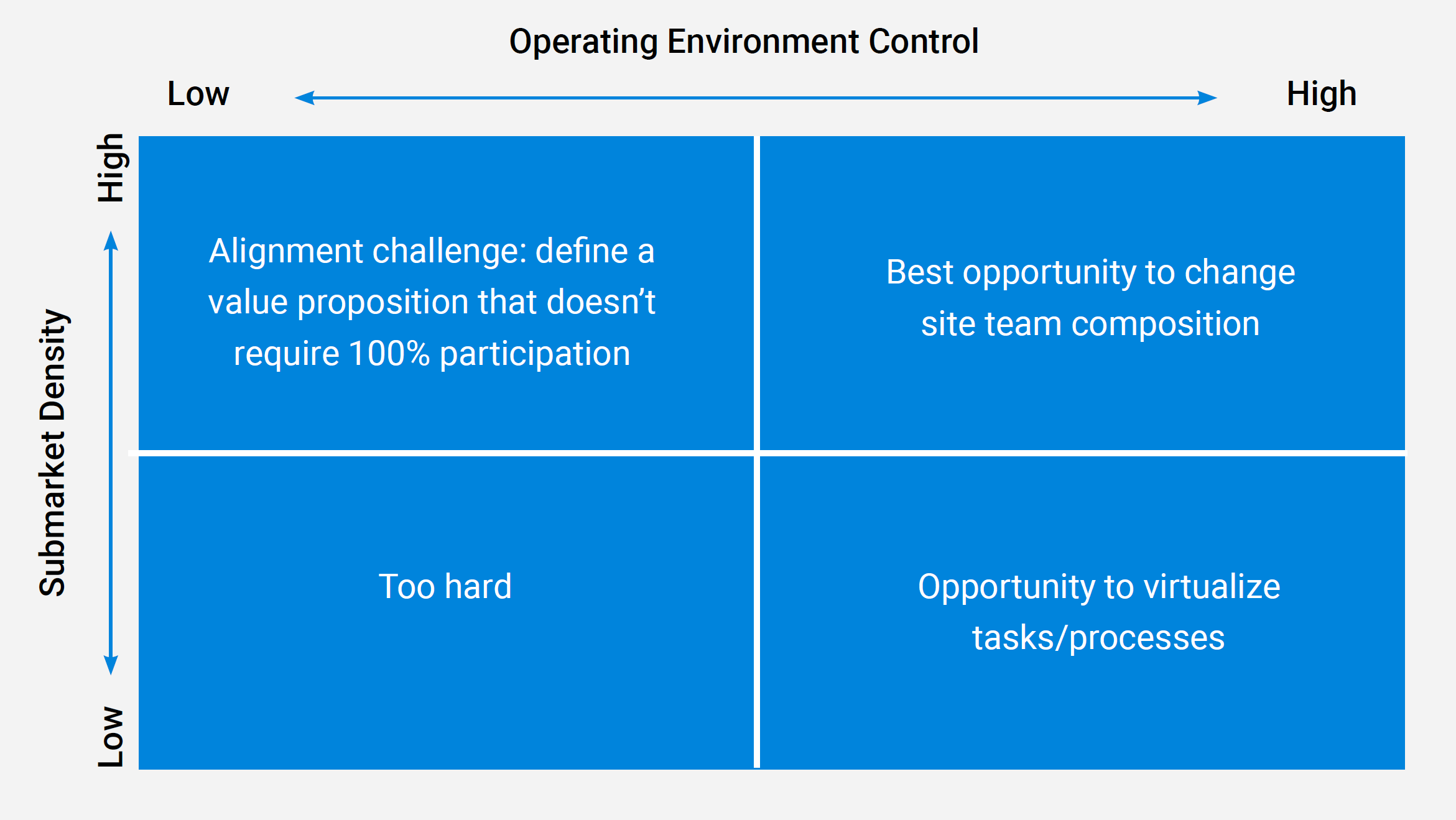
Centralization, as we all know, is a hot topic in the multifamily industry. This conversation began a few years ago when a few public REITs began to talk about changes to their property staffing models. I, among others, initially believed that once centralization started, everyone else would follow. If a few companies were achieving superior returns, the rest would naturally want to emulate them.
However, the last two years of 20 for 20 research have shown how much the perception of centralization varies from company to company. The differences in companies' approaches to centralization and the motives behind them are fascinating. And I will be running a session on this very topic at the Blueprint conference in September.
A Developing Theme
Let's take a brief look at recent history. The 2022 edition of 20 for 20 observed that the approaches to centralization varied based on two factors: the geographical proximity of properties and the extent to which a company controls its operating and technology environments. (The two-by-two matrix below summarizes these dynamics).

I approached that research assuming that everyone wanted to emulate the REITs. But I learned that only those companies sharing the same quadrant (top right) in the matrix can implement the same strategies as the REITs. Everyone else (i.e., the vast majority of the industry) needs to do something different.
A year later, I decided to delve deeper into this issue, so the 2023 research examined leasing, property administration, and maintenance separately. Interestingly, contrary to popular industry discourse, we found that property administration—not leasing—roles are being centralized most readily by the majority of companies.
Tasks associated with assistant property managers, such as accounting and payments, were being shifted to shared services functions by almost half of the interviewees. REITs have been doing this for a while, and it seems to be gaining traction across the industry. Recently, Gables announced its plan not only to move property administration offsite but to outsource it to a third party.
Neither leasing nor maintenance seems to be moving as quickly in the direction of centralized teams, but centralization has a high potential upside for both. The key is understanding the "what" and the "how," and in an industry with such diverse companies as multifamily, we can expect companies to change staffing and support models in many different ways.
With the diversity of business models, portfolio distributions, and business objectives of the funds that buy and sell properties, it's unwise to generalize observations about any company to the industry. The most important thing, therefore, is understanding the perspectives of each company.
Why I Love This Discussion Format
It can be hard to get good information on how operations are changing (it's largely why 20 for 20 exists!). At industry events, panels tend to focus on specific technologies and take place in front of a live audience, which limits the scope of the conversation. Individual accounts of projects are certainly insightful, but we must interpret them in the context of the adopting company and its unique circumstances. There are few one-size-fits-all solutions in multifamily.
From my experience organizing numerous large-scale multifamily events, I'm increasingly drawn to the concept of executive roundtables. They allow participants to speak candidly and probe one another's thoughts in a way that panel discussions don't. I had the opportunity to facilitate an enlightening discussion with a group of senior executives about admin centralization earlier this year. It was a candid and enlightening conversation.
So I'm excited to conduct another roundtable this September at the Blueprint conference in Las Vegas. This time, our focus will be on exploring centralization from the perspective of the average company. Given that the type of centralization undertaken by REITs might not be feasible for everyone, the most relevant question concerning centralization now is: what should it look like for everyone else?
I plan to focus on some of the things that interest me most about companies' centralization plans, like:
- Which comes first, people, process, or technology?
- How integral is technology in delivering a new service model?
- How do companies stick to their ambitious plans and avoid technology creep?
These questions and many others will be under discussion. Naturally, I will distill the findings from the conversation into a blog post after the event. If you're considering attending the Blueprint conference in Las Vegas this September, please contact me. Alternatively, use the registration code below to secure your place at this year's event.
I will be hosting a roundtable at this year’s Blueprint conference entitled “Centralization For The Rest of Us” on Tuesday September 12th. A few places remain on that panel - if you are interested in participating please email dom@20for20.com by July 31st. You can also register for the event here to get a $200 discount off registration.
Photo by Darius Cotoi on Unsplash


